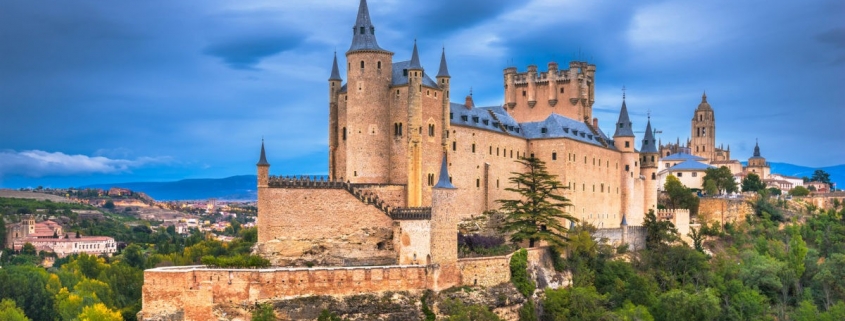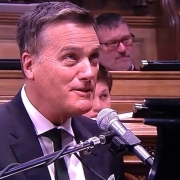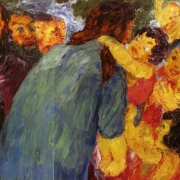Reimagining the ‘kingdom’ of God as something other than an ancient hierarchy
This article originally appeared on September 13, 2021 at Baptist News Global.
One of my biggest disconnections with the Bible is regarding its kingdom language. I totally understand why the biblical authors used it. It was how people back then thought about ultimate reality. So, of course, God would be talked about as the ultimate king.
But we don’t really think of ultimate reality as thrones and palaces and robes these days. Even the few places that still have kings do not have them sitting on thrones, wearing crowns and wielding scepters.
It’s a little difficult for me to get excited about having a crown with jewels and laying it at the feet of a bearded male deity sitting on a giant throne and holding a scepter because I simply do not relate to that concept of reality at any level in my life. I don’t even feel the desire to have a crown of jewels to begin with.

Rick Pidcock
If you trace the development of human consciousness over the centuries, you’ll realize that we’re evolving out of monarchies into entirely new ways of being and relating in the world.
Does it make more sense that God would reverse that development and take us back to an outdated form of human consciousness and governance as the ultimate reality or that kingdom language was simply the biggest set of concepts they could think of back then and that ultimate reality will turn out to be far more than we can imagine?
If we assume the old language, then God’s plan for ultimate reality is limited to the confines of ancient human organizations that we developed and grew beyond. However, if we assume another model, then our assumptions about the kingdom need to be challenged.
Challenging our assumptions about ‘the kingdom’
One of my favorite passages in the Gospels is when Jesus challenges the assumptions about the kingdom of God in Luke 17:20-21. When the Pharisees asked Jesus about when the kingdom of God would come, Jesus said it’s “not coming with things that can be observed; nor will they say, ‘Look, here it is!’ Or ‘There it is!’ For, in fact, the kingdom of God is among (or within) you.’”
When I think about a kingdom, I think about something large, a realm of ruling and reigning. Kingdoms are territorial. So the discussion becomes one of defining power dynamics, boundaries and separateness.
A kingdom is inherently a hierarchical image because the king is the male at the top who rules and reigns over all that is beneath him in his territory.
“A kingdom is inherently a hierarchical image because the king is the male at the top who rules and reigns over all that is beneath him in his territory.”
If we think about God and creation in these terms, then God would be positioned at the top of the hierarchy, ruling and reigning over the entire space that God has conquered. If you define God’s conquering as applicable to those who have submitted to God’s reign through a belief in penal substitutionary atonement, then God’s rule extends to a limited number of humans. However, if you define God’s conquering as applicable to wherever death has reigned, then God’s rule extends far beyond simply a limited number of humans and reaches even beyond the human realm.










Leave a Reply
Want to join the discussion?Feel free to contribute!